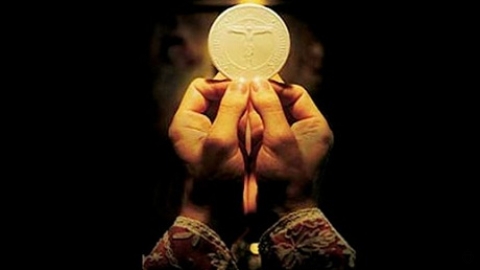Peter, do you love Me?

Ordinations on the Feast of the Sacred Heart of Jesus have a great significance. Love of the Sacred Heart will help the new priests to keep up with their duty to preach the word of God without compromising with the spirit of the world.
On June 29th, we will celebrate the feast of Saints Peter & Paul, the two founding pillars of the Roman Catholic Church. On that occasion, following a tradition established 40 years ago by Archbishop Lefebvre, some young men will be ordained priests at the SSPX motherhouse seminary of Ecône, Switzerland, one of them will be a young man from Canada.
Meanwhile, many traditional Catholics from Canada and the USA would have been attending the last priestly ordinations in Winona, on June 3rd, feast of the Sacred Heart of Jesus.
So, if we exclude the ordinations held on July 2 at Zaitzkofen, the German speaking seminary, this summer’s priestly ordinations in the Society of Saint Pius X will be under the patronage of the Sacred Heart of Jesus and of the Holy Apostles Peter and Paul.
Priests must love the Sacred Heart of Jesus
There is a deep connection between the Sacred Heart of Jesus and the life of the two great apostles Peter and Paul, the two pillars of the Roman Catholic Church. Before confirming Peter as head of the Church, Our Lord asked him: “Peter, do you love Me?” and, three times, Peter had to profess his univocal love of Christ.
It shows that one of the essential qualities of the apostle is to keep a great love of the Sacred Heart of Jesus. Such love of His Master will give to the apostle the strength to carry on with his duties in challenging times.
A perfect example of a deep love of the Sacred Heart of Jesus, routed in the contemplation of the divine, is found in the life of Pope St. Gregory VII, one of the greatest popes that left a deep impression on the history of the Catholic Church.
Born Hildebrand of Sovana, he joined the famous Benedictine Monastery of Cluny. From there, he was called to Rome to assist the Pope in main Church affairs. In 1073, upon the death of Pope Alexander II, the monk Hildebrand was elected successor of St. Peter. Hildebrand, who was still a deacon, was quickly ordained priest and was consecrated bishop. When he took possession of the See of Peter, he chose the name of Gregory VII.
One of the great reforming popes, St. Gregory VII was famous for his strong stand in favour of the papal primacy over the secular states. He is noteworthy for excommunicating Emperor Henry IV, who was trying to challenge the power of the Pope with the Investiture Controversy, that is to say with the right of the Pope to appoint bishops and religious abbots. He is also famous for upholding the priestly celibacy and the condemnation of simony.
Because he refused to compromise in matters of principles, St. Gregory VII suffered much, and eventually died in Salerno, in exile away from Rome.
As quoted by Abbot Marmion, where did St. Anselm, St. Gregory VII and Pius VII obtain that wonderful steadfastness of soul which sustained them in the midst of these memorable conflicts endured for the liberty of the Church? It was in the common life of the cloister that tried their souls, strengthened their characters and made them so intrepid and magnanimous that no danger frightened them. According to the noble saying of St. Gregory VII himself: “I never bent beneath the domination of the princes of this world and remained the courageous and submissive defender of St. Peter and of his Church.”
There is nothing new under the sun. The challenges of the Church in this first part of the 21th century are likened to those of the 11th century. In this Month of June, let us pray for the future priests who will be soon sent to the mission field, so that their heart will be filled with a great love of the Sacred Heart of Jesus, that will allow them to keep up with their duty to preach the word of God without compromising with the spirit of the world.


